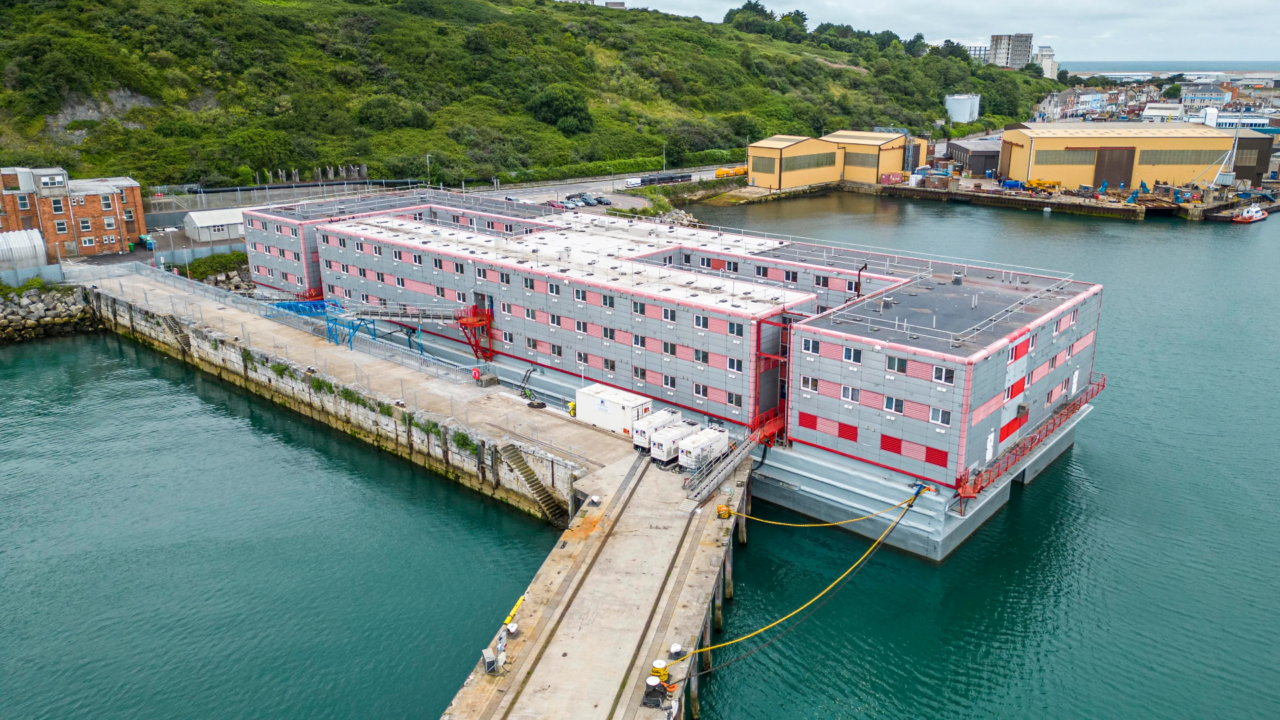The UK’s plan to house asylum seekers on a barge in Dorset has sparked a debate about the human rights of migrants. While the government has proposed it as a positive and temporary solution, others believe it could leave those housed there worse off.
The UK’s plan to use a barge as temporary accommodation for asylum seekers has resulted in mixed reactions from human rights advocates, politicians, and the general public.
Named Bibby Stockholm, the barge was previously used as housing for oil and gas workers, as well as asylum seekers. In the 90s, the boat had provided 52 overnight beds for unhoused individuals in Hamburg, Germany.
Now, it has been relocated to Dorset in the UK and has been offered as a response to the country’s growing number of asylum seekers.
Those in support of the Bibby Stockholm scheme frame it as a cheaper alternative to hotels, saying it will help to ease pressure on overcrowding in nationwide immigration facilities.
This issue is widely known, thanks to the government’s highly publicised plan to ‘stop the boats’ over the last year or so, as the number of migrants attempting the dangerous journey of crossing the English Channel has increased.
Each room on Bibby Stockholm is fitted with twin bunk beds, one desk, a bathroom, heating, windows, and a single wardrobe. Sarah Dines, the UK’s Home Office minister, said the barge would provide ‘basic but proper accommodation’ while sending ‘a forceful message that there will be proper accommodation – but not luxurious’.




















